The seminar devoted to the issue of the educational potential of the so-called second generation affected by Nazism in teaching about the crimes of the Nazi regime and the Holocaust took place at the Lidice Memorial and the Terezín Memorial on September 7-8, 2024. It is indisputable that the trauma caused by persecution, the loss of loved ones and imprisonment has had a profoundly adverse effect on both survivors and their children, as a result of what is known as the transgenerational transmission. As the number of direct witnesses to the horrors of war declines, we have a unique opportunity to engage the memories of children and grandchildren born after the war, who are the descendants of Holocaust survivors.
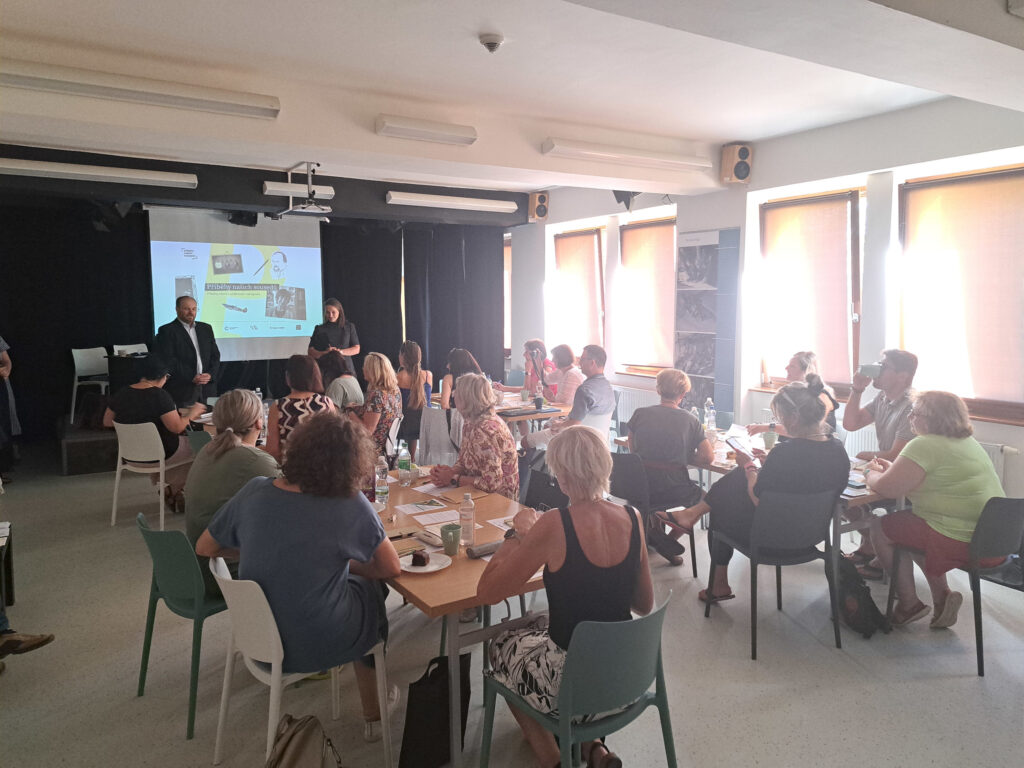
Although the seminar officially opened on Saturday morning, its participants were able to arrive in Lidice on Friday and spend their free evening on a guided tour of the Lidice Memorial site.
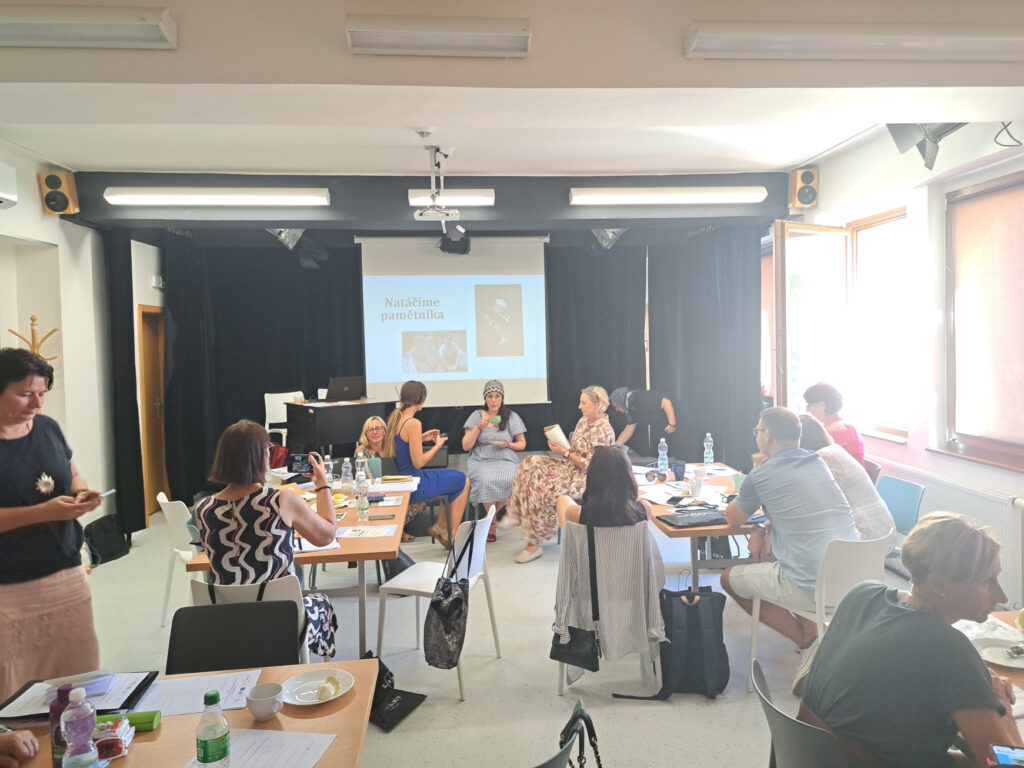
After Saturday’s welcome, the Lidice segment of the seminar was introduced by a workshop prepared by the association Memory of Nations and called ‟How to Film a Survivorˮ. During this section the participants themselves tried out all the essentials one has to consider and master when shooting such an interview. Josef Märc, an expert in the field of didactics from the Department of History at the Faculty of Arts of the Jan Evangelista Purkyně University in Ústí nad Labem as well as a teacher at the Mostecká Grammar School in Chomutov, made a compelling case for new approaches to project-based teaching and the use of witnesses in the classroom during the segment ‟Project teaching and work with witnessesˮ. Truly great moments came at the meeting with Jiří Pitín, who survived the annihilation of Lidice, and Kateřina Hládková, the granddaughter of the survivor Emilie Frejová. In the early evening, the seminar participants moved to the Terezín Memorial.
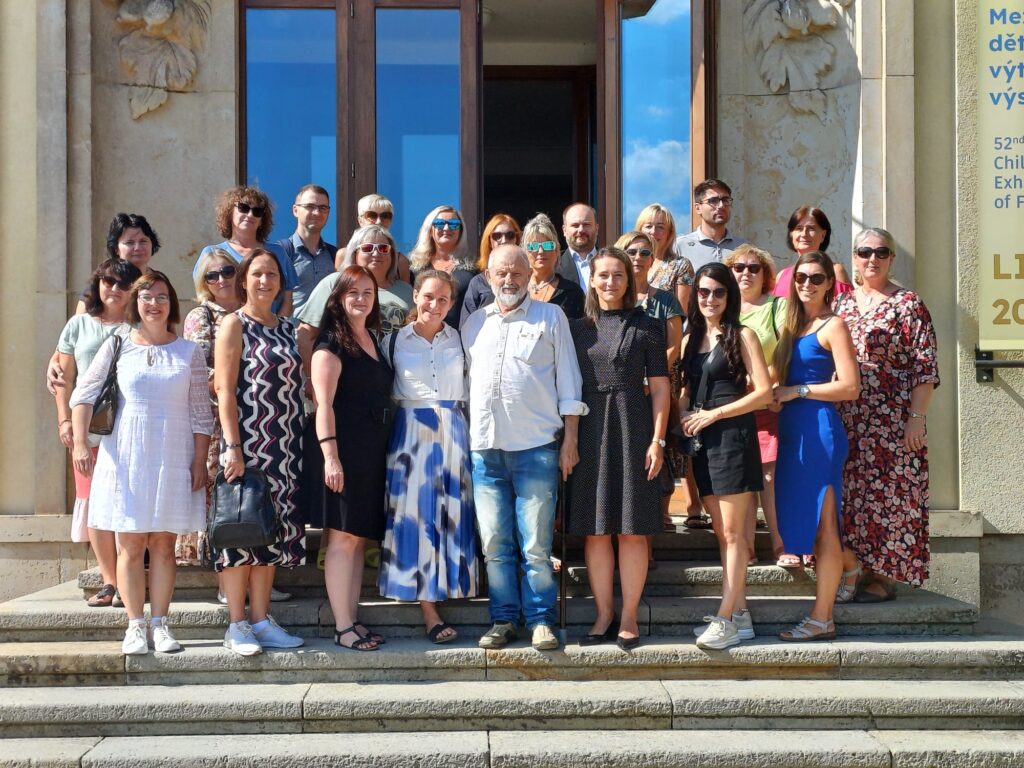
Day two of the seminar began with screening the documentary Voices of Children and discussing the methodological potentials of using filmed memories. Zuzana Peterová delivered an engaging account of her own insights and attitudes, which were shaped by the fates of Holocaust survivors’ parents. This lecturer also appeared in the following segment for which she was joined by two other second-generation witnesses – Alena Lehovcová and Frank Frištenský. They shared their experience of discussing these topics not only with young people, why they decided to talk about them at all, and the challenges they faced when they first started speaking publicly on these issues. Another topic of discussion was how students could be best prepared for such discussions and what outcomes would be most beneficial for them.
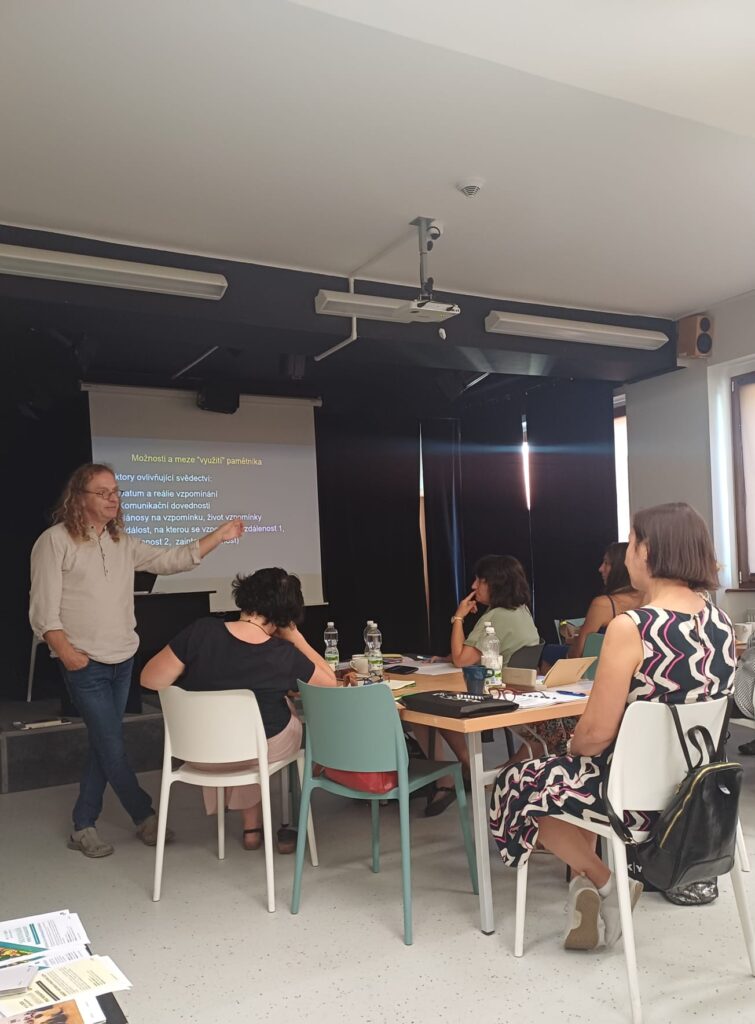
The discussions about documentaries and working with them included essential reflections, in which participants actively engaged and learned to conduct these reflections themselves. It is crucial to incorporate these reflections whenever working with memories.
The “pilot” seminar proceeded in a relaxed and convivial atmosphere, and its participants were eager to learn about new ways of working with students and to share experiences and inspiration with their colleagues and lecturers.
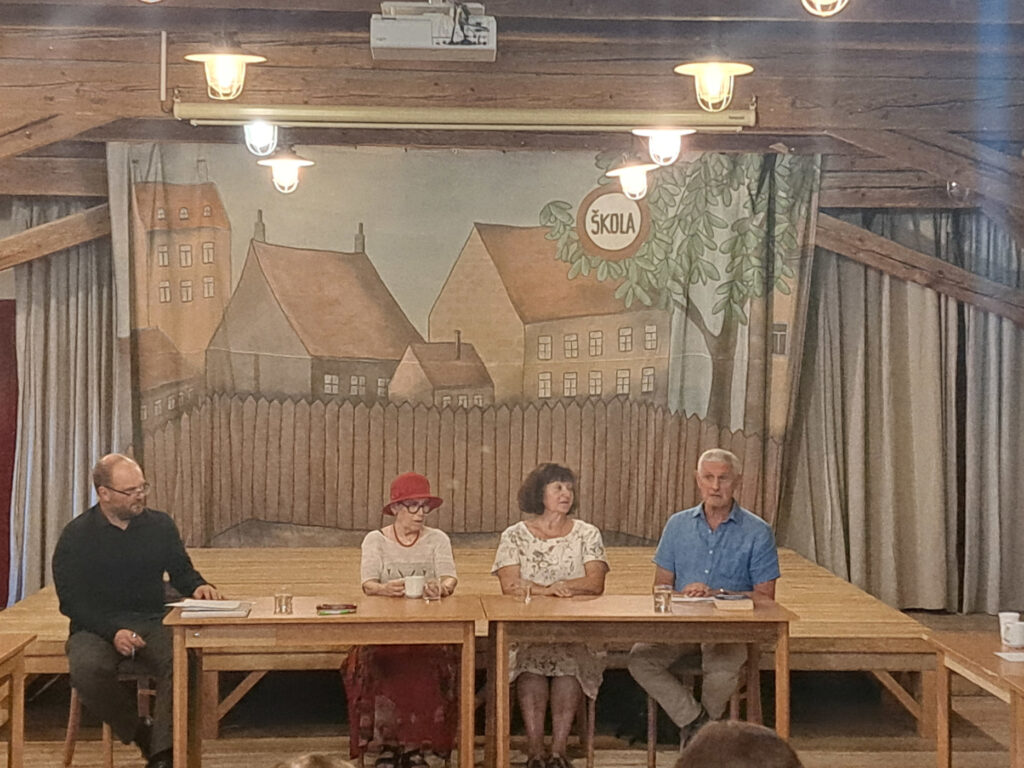
Emboldened by this positive feedback, we have decided ‒ together with our partners, i.e. the Lidice Memorial, the Jewish Museum in Prague, the Foundation for Holocaust Victims and the Czech Auschwitz Committee ‒ to organize another seminar of this kind, scheduled for the fall of 2025.
Helena Palová


